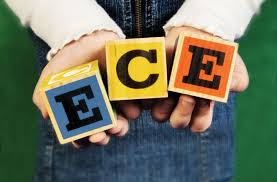To be totally honest, I was not at all surprised by the findings in the
article. The media and the influence from those around children are to blame
for this. “Children growing up today are bombarded from a very early age with
graphic messages about sex and sexiness in the media and popular culture”
(Levin and Kilbourne, 2009, p. 2). I can see how children are practically
forced into being this way. They simply observe and mimic what they see. I have
witnessed this many times. Here are a few examples:
Just
the other day when I was getting my eye brows waxed, the lady who was waxing my
brows started telling me how much of a diva her 4 ½ year old is. She told me
that her daughter asked her if she can wear make-up to school so she would look
beautiful. She said she allowed her to do so. I was shocked that she would
allow her very young daughter to wear make-up. Then, she went on to say that
she arches her eye brows for her. She even told me that her daughter asked for
her to wax her brows. She said she did, but her daughter said that it hurt too
much to do again, so she will just make her pluck them.
While
working as an afterschool teacher, there was a little girl who never liked to
play when we went outside. She was always dressed nicely and even kept her
nails done. Her nails always matched what she was wearing. She always applied
lip gloss every few minutes, as she looked into her compact mirror. Many of the
other children would say that the girl thought she was better than everyone
else. When her mother picked her up, she seemed to be the same way as her
child. Her nails always matched her outfits and she, too, applied lipstick and
gloss while she waited for her daughter to gather all of her belongings.
I
once observed a group of boys rating girls as they passed by them. This was in
a shopping mall in the food court. The boys looked like they were about 7-10
years old. While sitting at their table, I could hear them saying things like,
“Yeah, I’ll date her,” “No, she is flat chested,” and “Dang, she looks good.” I
assumed that they observed what was considered “beauty” and what was not based
on what they media portrays.
During
outside time, I once heard a group of girls talking about their weight and
size. One girl offered another girl advice to “eat more rice and peanut butter
sandwiches because she was too skinny.” Another girl was telling the other
girls that she started doing squats with her older sister so she would have
toned legs and a bigger bottom.
Children can face many implications regarding this
issue. “In the most extreme cases, the media’s incessant sexualization of
childhood can contribute to pathological sexual behavior, including sexual
abuse, pedophilia, and prostitution” (Levin & Kilbourne, 2009, p.4). This
is really an issue that should be taken seriously. People may think it is
harmless or “cute” but children are actually affected by this. I would take the
time to research this and advocate for the well-being of children and their
futures. I would even discuss this issue with children and their families,
expressing how important it is to be yourself and be proud of who you are. Reading
about this topic has allowed me to really see just how much children are
focused on the wrong things at such a young age. They should be more concerned
about enjoying their childhood and not what they look like.
Reference
Levin, D. E., & Kilbourne, J. (2009). [Introduction]. So
sexy so soon: The new sexualized childhood and what parents can do to protect
their kids (pp. 1-8). New York: Ballantine Books. Retrieved from:
http://dianeelevin.com/sosexysosoon/introduction.pdf

